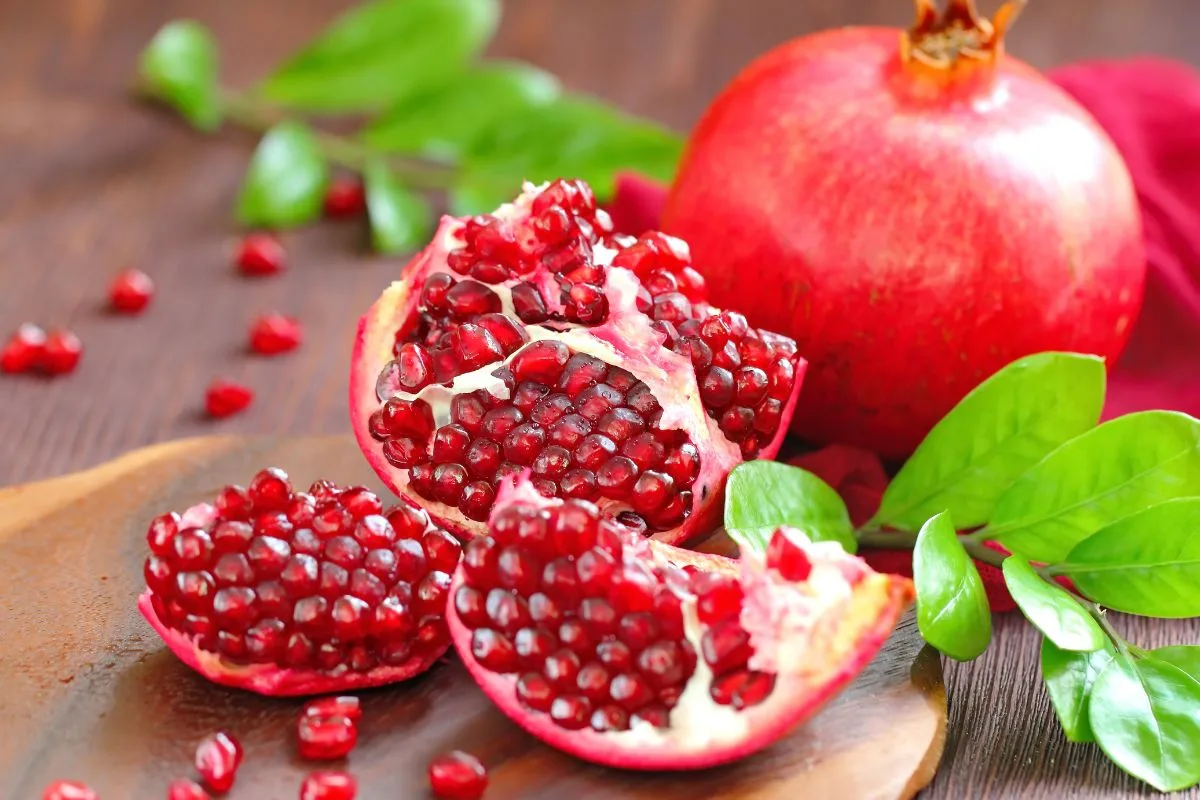Rich, sweet, and tropical mango is a culinary delight and a nutritional treasure. This beloved fruit is not only delicious but also packed with substantial health benefits. In this article, we will explore the nutritional profile of ripe mangoes, highlighting their contributions to our health and wellness. We will delve into the benefits of consuming this vibrant fruit, discuss potential considerations for mindful consumption, and provide insights that empower readers to incorporate ripe mangoes into their diets. By understanding their nutrition and impact on overall health, we can make informed choices that support our well-being.
Nutritional Information of Mango
Ripe mangoes offer an impressive array of nutrients that support various bodily functions. For every 100 grams of ripe mango, the following nutritional components are present:
- Protein: 0.6 g
- Total Fat: 0.4 g
- Dietary Fibre: 0.7 g
- Carbohydrates: 16.9 g
- Energy: 309.62 joules
- Iron: 1.3 mg
- Calcium: 14 mg
- Sodium: 26 mg
- Potassium: 205 mg
- Zinc: 0.3 mg
This nutritional profile showcases why ripe mangoes are more than just a delicious treat. They represent a combination of vitamins, minerals, and phytonutrients that contribute to a balanced diet. The relatively low protein and fat content, paired with a substantial amount of carbohydrates, means mangoes can provide a quick energy source. Additionally, the presence of dietary fiber makes them beneficial for digestive health, while the minerals support various physiological functions.
Health Benefits of Consuming Mango
The benefits of consuming ripe mangoes extend far beyond their delightful taste. Incorporating mangoes into your diet can promote various health benefits:
- Rich in Antioxidants: Ripe mangoes are loaded with antioxidants, such as vitamin C and beta-carotene. These compounds help combat oxidative stress and protect the body against free radicals, potentially reducing the risk of chronic diseases.
- Supports Digestive Health: The dietary fiber in mangoes aids digestive processes and promotes regular bowel movements. Eating mangoes can help prevent constipation and improve gut health.
- Boosts Immune Function: High levels of vitamin C found in mangoes can enhance the immune system’s ability to fight off infections. Regular consumption may help reduce the frequency of colds and other illnesses.
- Enhances Skin Health: The vitamins and antioxidants in mangoes contribute to healthy skin. Vitamin A, in particular, can improve skin complexion and has anti-aging properties.
- Aids in Eye Health: Beta-carotene and other carotenoids present in mangoes play a vital role in maintaining good vision. These nutrients may lower the risk of age-related macular degeneration and strengthen eye health.
- Regulates Blood Sugar Levels: While mangoes are relatively sweet, their fiber content can help moderate blood sugar levels. This can be particularly beneficial for those managing diabetes, as fiber slows digestion and absorption of sugar.
Overall, the potential health benefits of ripe mangoes make them an excellent addition to a balanced diet. However, it’s essential to enjoy them in moderation, as excessive consumption of high-sugar fruit can lead to spikes in blood sugar and other health issues.
Considerations for Mindful Consumption
While ripe mangoes offer numerous health benefits, it’s crucial to approach their consumption mindfully. Here are some considerations to keep in mind:
- Portion Control: Although mangoes are nutritious, it’s important to practice portion control, especially for individuals with diabetes or those monitoring their carbohydrate intake. Enjoying a moderate serving size helps ensure you reap the benefits without overindulgence.
- Allergen Awareness: Some individuals may experience allergies to mango, particularly those sensitive to urushiol, which is also found in poison ivy. If you have experienced allergic reactions to mango or similar fruits, consult with a healthcare professional.
- Organic vs. Conventional: If possible, choose organic mangoes to minimize exposure to pesticides and chemicals. Organic fruits are generally free from synthetic fertilizers and provide a cleaner choice for health-conscious consumers.
- Pairing with Other Foods: Ripe mangoes can be enjoyed in various ways. Pairing them with nuts or yogurt can enhance their nutrient profile, providing healthy fats and proteins, which aids in the balanced absorption of sugars.
- Storage and Ripening: Ripe mangoes should be stored at room temperature if you’re looking to enjoy their sweetness, but they can be refrigerated for longer freshness. Ripe mangoes should be consumed within several days for optimal taste and texture.
By keeping these considerations in mind, you can enjoy ripe mangoes while optimizing their nutritional benefits within a balanced diet.
Ways to Incorporate Mango into Your Diet
Now that you’re aware of the benefits and nutritional value of ripe mangoes, let’s explore creative ways to include them in your daily meals:
- Fresh and Raw: Enjoy ripe mango on its own or add it to fruit salads for an instant energy boost. Combining it with other fruits can enhance flavors and textures.
- Smoothies: Blend ripe mango with yogurt, spinach, or kale for a nutritious breakfast or snack. The creamy texture and sweet flavor make it a smoothie favorite.
- Salads: Dice ripe mango and add it to salads for a refreshing twist. The sweetness pairs well with savory ingredients like spinach, avocado, and grilled chicken.
- Desserts: Use mango puree to create healthy desserts like sorbets, mousses, or use it as a topping for oatmeal or pancakes. The natural sweetness can often eliminate the need for added sugar.
- Salsas and Sauces: Create a vibrant mango salsa by combining diced mango with cilantro, onion, and lime juice. This can add an exciting flavor to grilled meats and fish.
With these suggestions, ripe mango can easily become a staple in your diet, offering both delicious taste and significant health benefits.
Conclusion
In closing, mangoes are not just a tropical fruit; they represent a rich source of nutrition with a wide variety of health benefits. From their impressive nutrient profile to their potential positive effects on digestion, immune function, and skin health, the advantages of incorporating mangoes into your diet are manifold. However, being mindful of portion sizes and any potential allergies is crucial for enjoying mangoes successfully. With the knowledge and suggestions provided, you now have the tools to integrate ripe mangoes into your meals and foster healthier eating habits. Embrace this delightful fruit as a component of your nutritional journey, and unlock the sweetness and health it offers.
Axis Diet is dedicated to empowering individuals with knowledge and practical advice for healthier living. Our articles, grounded in research and expert insights, aim to simplify complex nutritional concepts, offering a comprehensive understanding of various aspects of diet and wellness. While these articles are informative and a great starting point for anyone looking to improve their health, they are for informational purposes only. For personalized, professional guidance tailored to your unique health needs, we encourage you to consult with Axis Diet’s registered dietitians. Reach out to us for expert personalized guidance on your nutritional journey.






[…] Fruits like bananas, mangoes, and apples are good sources of simple sugars and provide quick energy along with essential […]